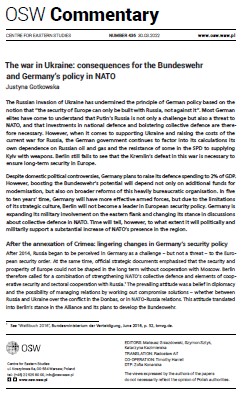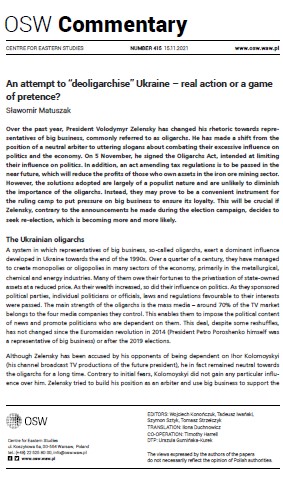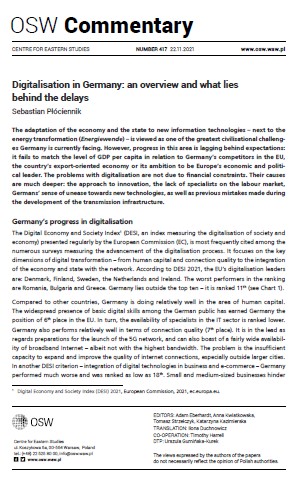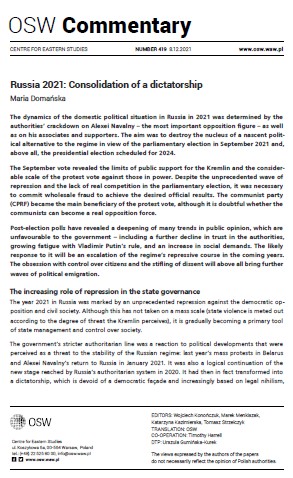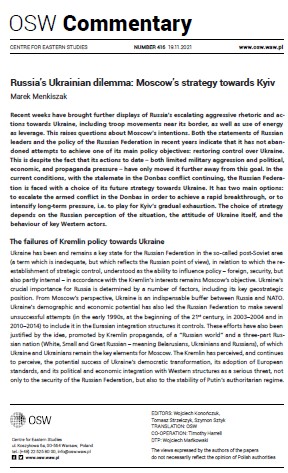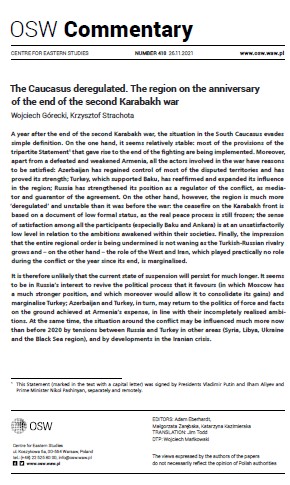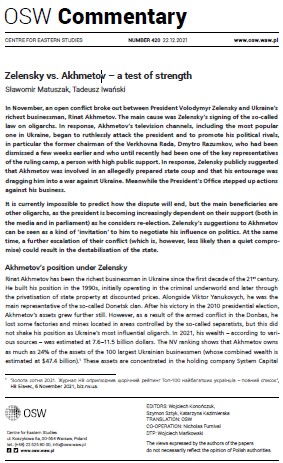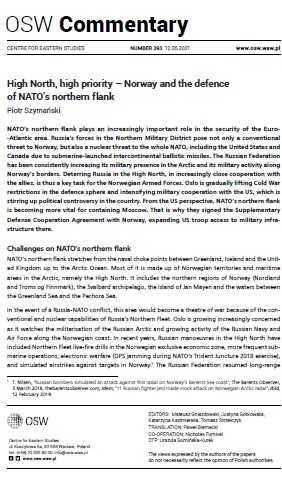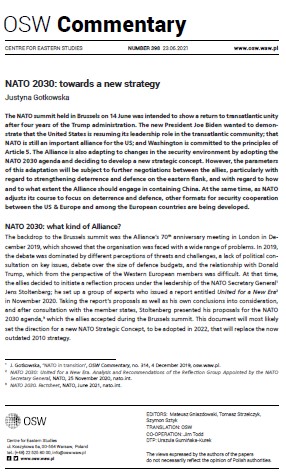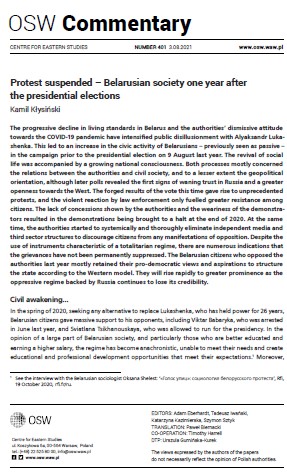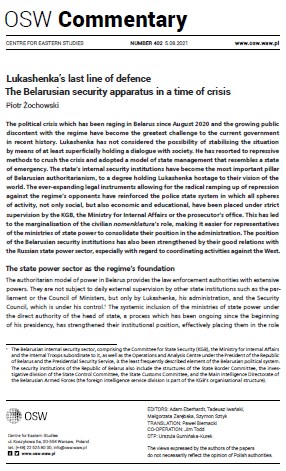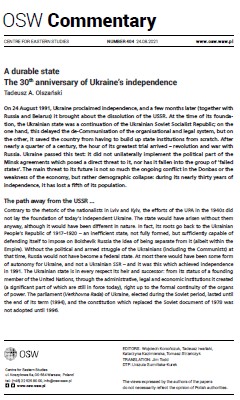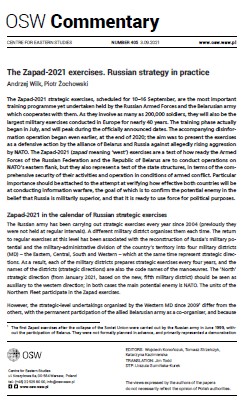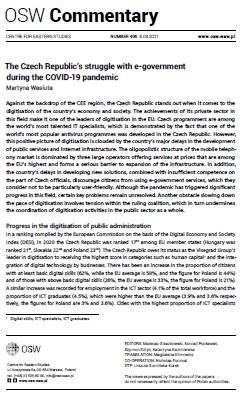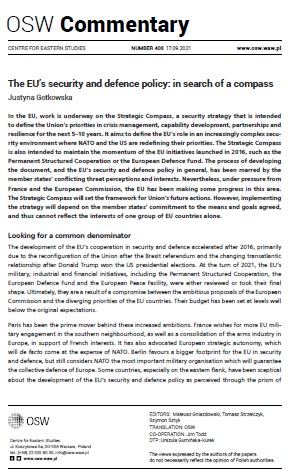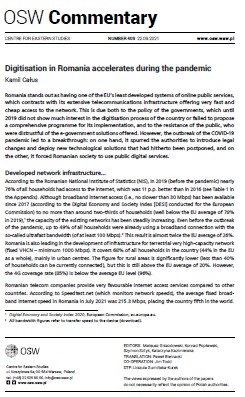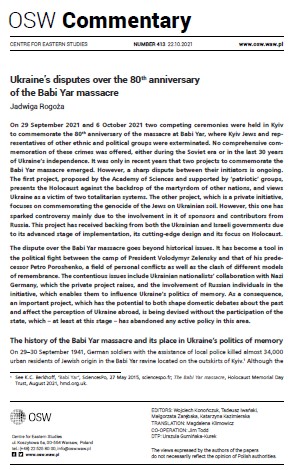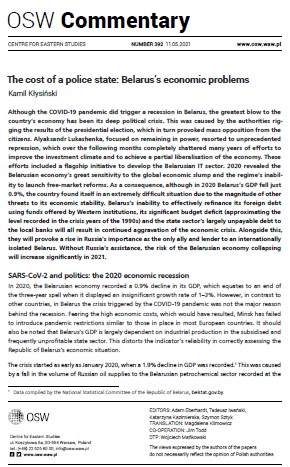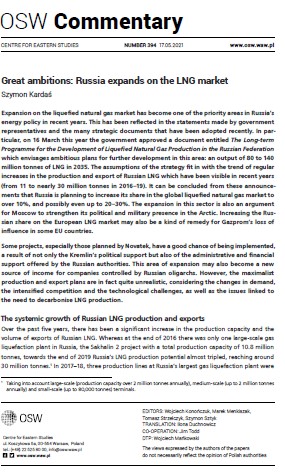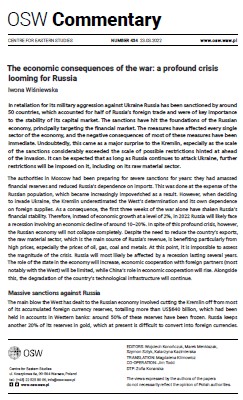
The economic consequences of the war: a profound crisis looming for Russia
The economic consequences of the war: a profound crisis looming for Russia
Keywords: Russia; military aggression against Ukraine; sanctions against Russia; Russian economy; The Kremlin; high oil prices;
In retaliation for its military aggression against Ukraine Russia has been sanctioned by around 50 countries, which accounted for half of Russia’s foreign trade and were of key importance to the stability of its capital market. The sanctions have hit the foundations of the Russian economy, principally targeting the financial market. The measures have affected every single sector of the economy, and the negative consequences of most of these measures have been immediate. Undoubtedly, this came as a major surprise to the Kremlin, especially as the scale of the sanctions considerably exceeded the scale of possible restrictions hinted at ahead of the invasion. It can be expected that as long as Russia continues to attack Ukraine, further restrictions will be imposed on it, including on its raw material sector.
More...
